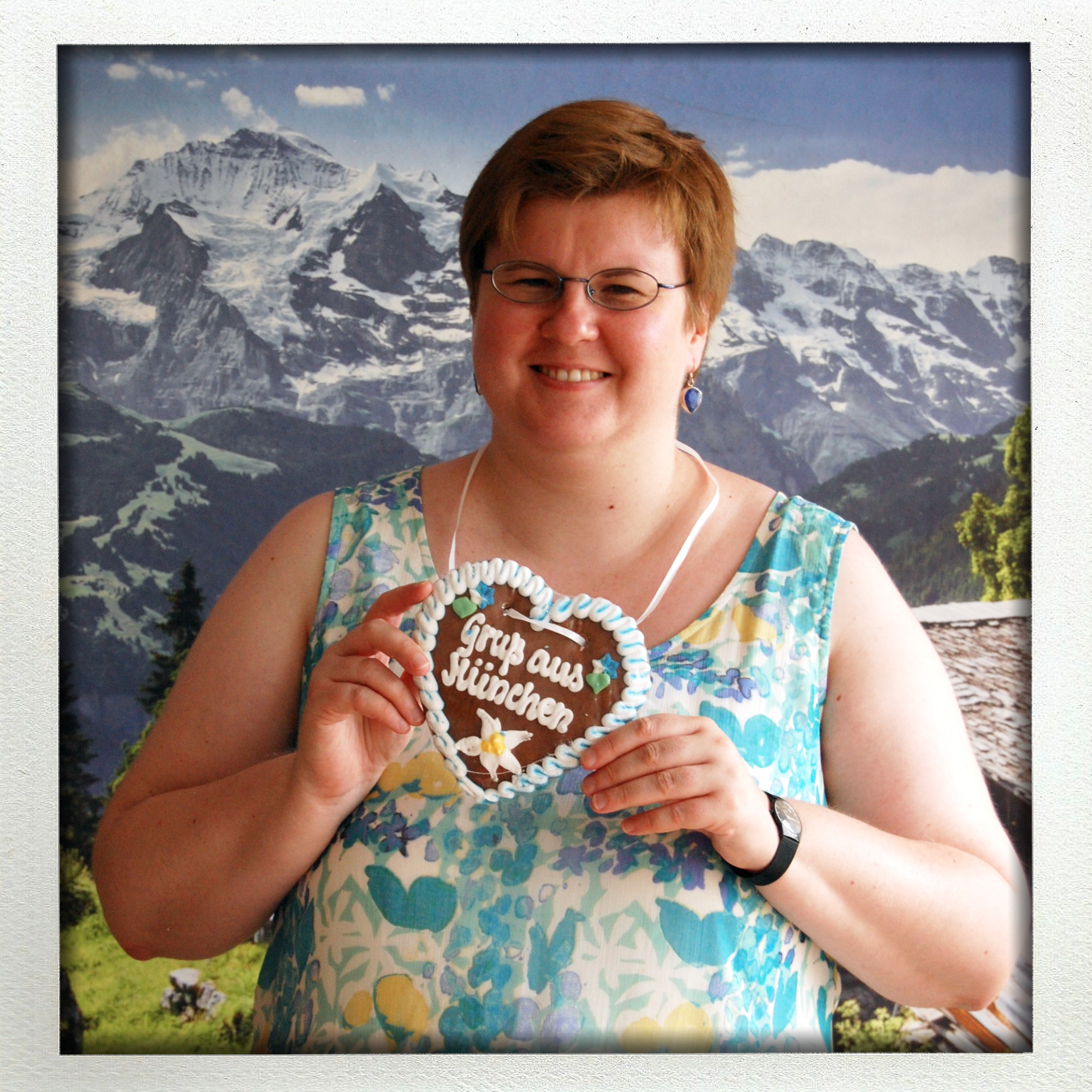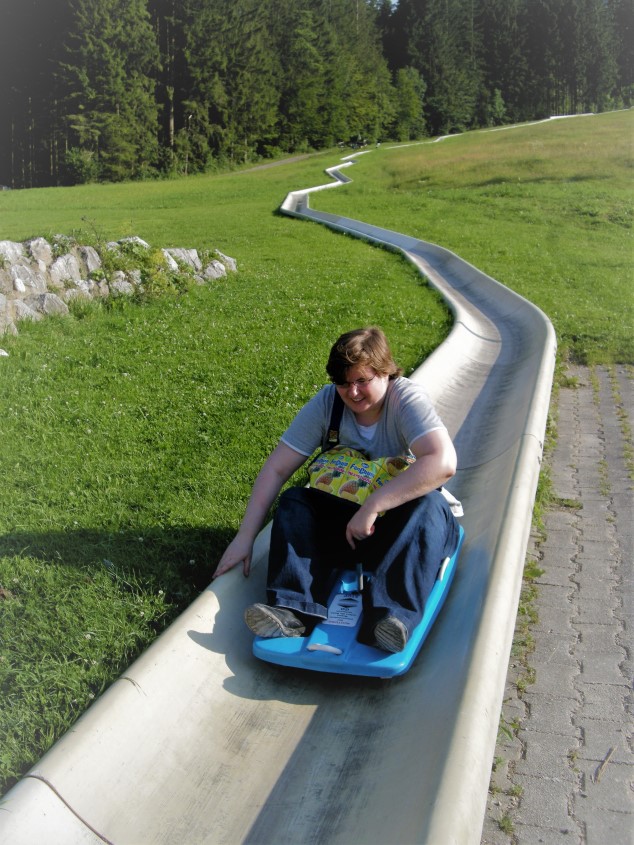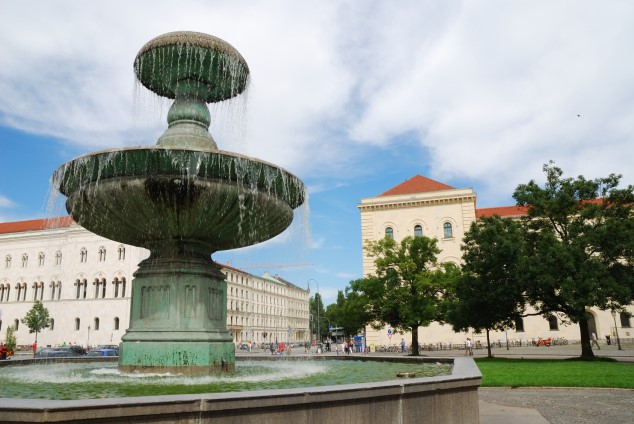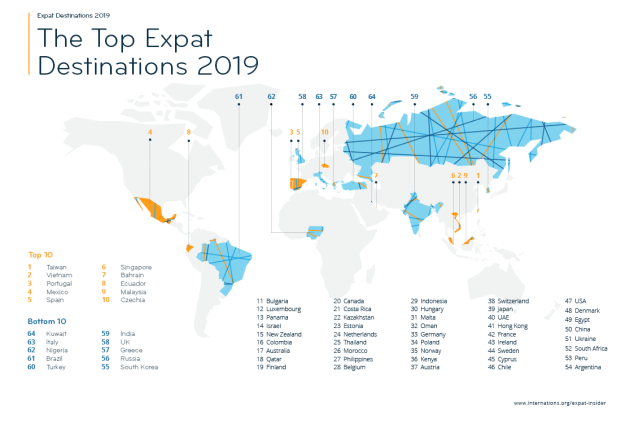In the series “Job Profiles”, we talk to various members of the InterNations team about their position and the work they do.
For this entry, we’ve had a chat with Margit from our Editorial Office Team in a reversal of the usual interviewer/interviewee setting.

Can you tell us what you do at InterNations?
I work in the Editorial Office Team, which is part of the Content & Communications Department. As my job title “Senior Content & Communications Manager” implies, we are responsible for creating written content for our platform, both the website and the app, providing a good deal of our corporate communications, and supporting other teams with content and copy.
Personally, I’m responsible for this blog, as well as partly responsible for Expat Insider, one of the world’s biggest expat surveys. In 2019, its sixth year running, we’ve had more than 20,000 respondents! As part of the Expat Insider team, I give input on the questionnaire and on various articles based on data from the survey. I also work with the PR Team to finalize the content for their press outreach — from proofreading and fact-checking to translating press releases.
What does a typical workday look like for you?
It really depends. I don’t think I have a typical day per se, but rather typical days depending on certain seasons and our overall schedule throughout the year. For example, when we are busy writing the Expat Insider survey report, most of my time is spent going through the data and preparing storylines based on the results, as well as proofreading and fact-checking other people’s articles. At other times, my work is more varied, though I’m often involved in other people’s project-based tasks.

You’ve just mentioned that the Expat Insider survey is in its sixth year. How long have you been with InterNations?
Well, I was already part of the first survey team in 2014 — which is not a big surprise considering I started working at InterNations in 2008. I like to joke that this officially makes me the “Office Dinosaur”.
In 2008, InterNations was tiny, only 20 people at most, including interns and working students. I started as a trainee on an 18-month contract with a focus on providing content. However, we didn’t even have a content section or an editorial team back then, and while it was certainly the goal to establish one, this obviously took time.
So, I took on all kinds of tasks during those first 18 months, from replying to support requests to assisting our first InterNations Ambassadors with organizing official events in their communities, though on a much smaller scale than today. I also did some stints as an office assistant whenever necessary; in such a small team, we did whatever had to be done, which for me included screening applications, among other things. I ended up inviting quite a few future colleagues to job interviews!
Sounds like an interesting start! You mentioned being a trainee initially: I assume InterNations was your first job?
Yes, my trainee contract was my first proper job after graduating from the University of Munich. I’d had some work experience before, but nothing to write home about. I did a few internships — the kind you usually do as a student of the humanities — at a German advertising agency and at a local publisher. And I held a couple of student jobs at university, such as tutoring first-years in literary studies or helping out in the library, that sort of thing.

If you think back to the beginning, would you say your career at InterNations has taken you in an unexpected direction?
To be completely honest, I had no idea what exactly I was going to do when I applied here. Of course, I was told that InterNations was planning to create content someday. But the company was a very young start-up, and Malte and Philipp, our founders and co-CEOs, had to be flexible with regard to business development.
You can’t make fixed plans, realize something doesn’t work for your business — or something else works better than expected — and still stick to the plan, that’d be financial suicide. Our official events are an excellent example: they weren’t even part of the original business plan but were soon added based on popular demand. Today, our events and activities are one of our unique selling points.
I also hadn’t really thought about working for an online company. I was very interested in the traditional publishing industry, especially for academic nonfiction, but so are hundreds of other applicants with liberal arts degrees, which makes it a very tough field to get into.
At InterNations, we started properly experimenting with content in late 2009. But we soon realized that our initial plans were not all that realistic: you can’t write in-depth guides for every community with just a small team of employees based in Munich, not if you want to deliver both quantity and quality. That’s why we ended up writing what we internally called “summary guides”, focusing on the basics for moving to, as well as living and working in, a specific city or country. At the same time, we also began to build up the Editorial Office Team.
Moreover, the content we produced back then wasn’t only meant to provide information for our members, it was also very much driven by online marketing goals. We were hoping that people googling certain keywords like “moving to Munich” would come across our guides, find our information and our community useful, and register as new InterNations members.
Nowadays, the Editorial Office Team is rather the company’s Schaltzentrale (control center) for all sorts of communications. Apart from producing brand-related content like this blog, the InterNations Magazine, or our monthly global newsletter, we also work on such things as marketing emails for the Corporate Partnerships Team, copy for the Product Team, and Expat Insider content for the PR Team. That’s a completely different focus compared to the early days. But our expat guides have found a new home and a dedicated content team at InterNations GO!, so the legacy lives on.
In retrospect, I’m very glad that I joined InterNations and that the job has changed so much over time. If it hadn’t, I probably wouldn’t be here eleven years on. I’m a person who very much likes stability, but even I might have become bored after almost a dozen years.

And how has InterNations as a company changed over the years?
Okay, here’s another of my unfunny jokes: you haven’t been with InterNations long enough if you don’t remember the days when we were subletting one of the rooms in our modest one-floor office. Nowadays, we have offices in multiple locations across Europe.
In more general terms, it’s been interesting to observe how InterNations has become a lot more professional over the years; and I don’t mean this in a pejorative sense. Business strategies have been established and adapted, different teams have emerged and grown, our organizational structure has changed; and we have gradually developed a corporate culture and a distinct brand of our own.
Do you have any “proudest moments” related to your time at InterNations?
While I’m not the only person responsible, I’m proud we’ve managed to establish such a large expat survey with Expat Insider; especially since we do everything in house — from setting up the questionnaire, collecting the data, and analyzing the results to writing and designing the report, promoting the survey, and doing the press outreach. It’s a huge project that involves a lot of people across several teams, and it’s neat to be a part of it.
My colleagues might be used to me complaining when things get busy, but the survey has quite the reach, and I’m always happy to see the major impact it has. There’s recently been a lively conversation, for example, in the Danish media about expats and their difficulties in finding friends in Denmark and adjusting to Danish culture. And this debate was sparked by a journalist coming across Denmark’s results in our Ease of Settling In Index.

What do you like best about your job or about InterNations in general?
The new coffee machine — it’s awesome!
But in all seriousness, this is a question I ask whenever I do my blog interviews, and I always tell my interviewees that they shouldn’t just reply “the people”. Still, my first response would also be “the people”, so I’m cheating a bit.
We are a very international and diverse team, and I think it’s pretty great to find out more about our colleagues’ personal stories. That’s also why, when I was coming up with the content strategy for this blog and wondering what to focus on with regard to InterNations as an employer, the people were the answer. They make us truly special as a company.
Of course, there’s a downside to having an international team. Some departments suffer from a higher staff turnover than others for this simple reason: if you hire lots of international people, they might move again because they get homesick or choose to live closer to their family; or they might meet another expat, fall in love, and move to yet another country, and so on.
Fortunately, the turnover in the Content & Communications Department has been comparatively low. This has helped us to really get to know one another, as well as our skills, strengths, and weaknesses. I like having this kind of stability. Plus, while I’m a bit wary of calling colleagues friends because I’m a) German, b) a little old-fashioned, and c) a bit antisocial, I think we have definitely established a very friendly team!

Speaking of being German: Have you ever lived abroad yourself?
Yes, I lived abroad as a student, like quite a few of the German employees here. I spent a year in the UK ages ago, when no one could have foreseen Brexit. Attending Oxford University was the first time in my life that I’d been abroad for a significant amount of time, since my parents didn’t have any international experience themselves. It was also the first time I became aware of how stereotypically German I am. This wasn’t necessarily a bad thing, but the way it dawned on me was rather embarrassing.
Let’s just say when you greet a German person with “Hi, how are you?” they’ll tell you exactly how they are doing, especially if they are feeling cranky. It took me a while to realize people from a lot of other countries don’t actually want to know how you are — you should just say, “fine,” and then add something about the weather or today’s lunch menu in the cafeteria, and that’s it. I now get it on an abstract level, but on a deeper, emotional level, I honestly still find it odd.

Could you imagine living abroad again? and if so, where would we find you?
I don’t have any specific plans to move abroad. I think it gets harder to do so the older you get, especially when you’ve chosen a specific career path that might not be easy to transfer to other countries — unless you have highly sought-after skills. But as I’m not a dentist or a software engineer, I think it would be harder for me to make use of my communications-based skills abroad, especially because of the potential language barrier.
Still, if the “expat fairy” were to appear and offer me the chance to live abroad in my destination of choice, I would pick one of the Scandinavian countries, particularly Sweden or Norway. They have a pretty high standard of living and are not that far away, so it’d be easy for me to visit my family in Germany. They also have some gorgeous scenery, and the language is easy to learn, at least for a native German speaker.
Okay, it gets very cold in winter, but even that might be an interesting experience, at least for the first few years. And when you get really sick of the cold and the dark, you can always cheer yourself up by meeting new people through the InterNations Communities in the Scandinavian capitals. I’ve heard they’re pretty lively!
Image credits: InterNations/iStockphoto/Pexels
Cool article, nice talk! It is important to figure out what you want to do and go on.